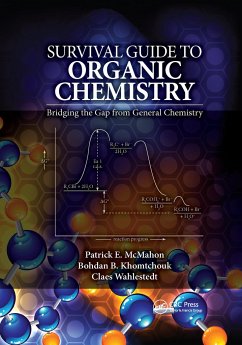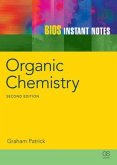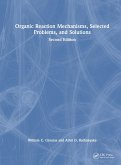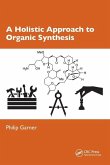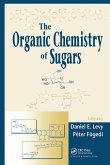The Survival Guide to Organic Chemistry: Bridging the Gap from General Chemistry enables organic chemistry students to bridge the gap between general chemistry and organic chemistry. It makes sense of the myriad of in-depth concepts of organic chemistry, without overwhelming them in the necessary detail often given in a complete organic chemistry text.
Here, the topics covered span the entire standard organic chemistry curriculum. The authors describe subjects which require further explanation, offer alternate viewpoints for understanding and provide hands-on practical problems and solutions to help master the material. This text ultimately allows students to apply key ideas from their general chemistry curriculum to key concepts in organic chemistry.
Key Features:
Reviews key general chemistry concepts and techniques, adapted for application to important organic principles
Provides practical guidance to help students make the notoriously well-known and arduous transition from general chemistry to organic chemistry
Explains organic concepts and reaction mechanisms, generally expanding the focus on how to understand each step from a more intuitive viewpoint
Covers concepts that need further explanation as well as those that summarize and emphasize key ideas or skills necessary in this field. An added bonus is help with organizing principles to make sense of a wide range of similar reactions and mechanisms
Implements a user-friendly process to achieve the end result of problem solving
Covers organic chemistry I and II concepts at the level and depth of a standard ACS organic chemistry curriculum; features practice problems and solutions to help master the material, including an extensive and comprehensive bank of practice exams with solutions
Here, the topics covered span the entire standard organic chemistry curriculum. The authors describe subjects which require further explanation, offer alternate viewpoints for understanding and provide hands-on practical problems and solutions to help master the material. This text ultimately allows students to apply key ideas from their general chemistry curriculum to key concepts in organic chemistry.
Key Features:
Reviews key general chemistry concepts and techniques, adapted for application to important organic principles
Provides practical guidance to help students make the notoriously well-known and arduous transition from general chemistry to organic chemistry
Explains organic concepts and reaction mechanisms, generally expanding the focus on how to understand each step from a more intuitive viewpoint
Covers concepts that need further explanation as well as those that summarize and emphasize key ideas or skills necessary in this field. An added bonus is help with organizing principles to make sense of a wide range of similar reactions and mechanisms
Implements a user-friendly process to achieve the end result of problem solving
Covers organic chemistry I and II concepts at the level and depth of a standard ACS organic chemistry curriculum; features practice problems and solutions to help master the material, including an extensive and comprehensive bank of practice exams with solutions
'In Survival Guide to Organic Chemistry, the authors approach concepts in organic chemistry from an angle that differs from most textbooks. Rather than the usual approach of heavy paragraphs and figures, they establish a process wherein each concept is broken into a series of manageable steps, each of which involves a singular aspect of an overarching theme. Each step includes an example illustrating that singular process. This method allows students to approach material at levels within their control, rather than all at once for any given concept. The text also provides a framework for organizing reactions and includes over 30 practice exams spanning concepts of both semesters of a typical undergraduate organic chemistry sequence. In addition to students entering organic chemistry, this text could also serve as a useful reference for students in upper-level undergraduate or graduate level courses who need to refresh fundamental concepts before delving into more complex material. Finally, faculty may find this useful as a source of practice problems in class, as well as a means of guiding conversations for students struggling with particular concepts.
--J. Tedesco, Lake Erie College
Summing Up: Recommended. Lower-division undergraduates and above; faculty and professionals.'
- J. Tedesco, for CHOICE, January 2018, Vol. 55, No. 5.
--J. Tedesco, Lake Erie College
Summing Up: Recommended. Lower-division undergraduates and above; faculty and professionals.'
- J. Tedesco, for CHOICE, January 2018, Vol. 55, No. 5.

